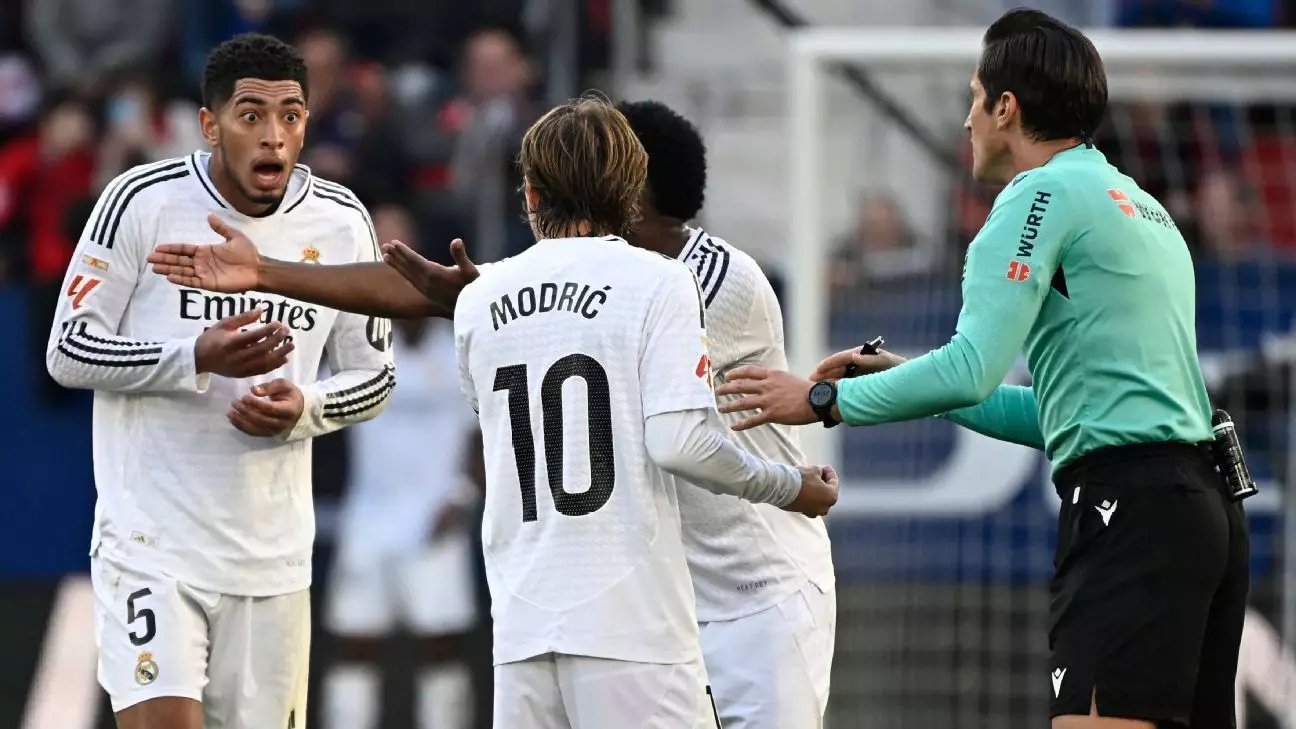In a closely contested match between Real Madrid and Osasuna, Jude Bellingham’s dismissal in the first half sparked a whirlwind of discussions among fans and analysts alike. The incident occurred after Bellingham expressed his dissatisfaction with a referee’s decision, which led to the official, José Luis Munuera, pulling out a red card during the 40th minute. What seemed like a straightforward act of dissent soon morphed into a dialogue about communication on the pitch, specifically regarding the refereeing standards involving international players.
Post-match, Bellingham made it clear that he believed a significant miscommunication had taken place, expressing regret over the incident that saw his team reduced to ten men. He articulated his perspective on the exchange that led to the red card, stating, “It’s clear that he made a mistake, there was a miscommunication.” His acknowledgment of the social intricacies within the game highlighted the complexities mindset of modern footballers who navigate multiple languages and cultures.
Bellingham’s defense also centered on the concept of intent. He asserted that he never intended to undermine the authority of the referee or endanger his team’s competitiveness. “I want the team to know I wasn’t irresponsible…,” he remarked, indicating his commitment to the collective effort of the squad. Footage of the incident would later become crucial in examining whether his words warranted such a severe disciplinary measure.
Real Madrid’s head coach, Carlo Ancelotti, lent his voice to the turmoil surrounding the incident, suggesting that the referee’s inability to fully grasp Bellingham’s language played a crucial role in the misunderstanding. His assertion, “I think the referee didn’t understand English well,” shed light on the hurdles that arise from language barriers in a melting pot of cultures that modern football represents.
Ancelotti’s mention of the specific phraseology Bellingham used aimed to contextualize what transpired, implying that perhaps the response was mischaracterized as offensive. He noted, “In Spanish, it would be ‘no me jodas.’ I don’t think it’s offensive.” This distinction invites scrutiny into the linguistic nuances that underpin interactions between players and officials, particularly in a game where split-second decisions can lead to game-altering consequences.
This incident raised larger questions regarding referee accountability and the standardization of disciplinary actions across different leagues and nations. Bellingham’s call for a reassessment of the footage could ignite discussions about the need for clearer communication protocols in officiating where language exists as a boundary.
Going forward, clubs, players, and referees may need to engage in more extensive dialogue to navigate these challenging encounters. With Bellingham at the forefront of this debate, a growing recognition of the complexities faced by international players has emerged, underscoring the importance of clarity and mutual understanding in maintaining the integrity of the game.
The incident involving Jude Bellingham and José Luis Munuera is not merely an isolated event but rather a reflection of the myriad dynamics at play within modern football. As the dialogue continues, both players and officials could benefit from greater awareness and sensitivity to the linguistic diversities that characterize the sport on an international stage.

